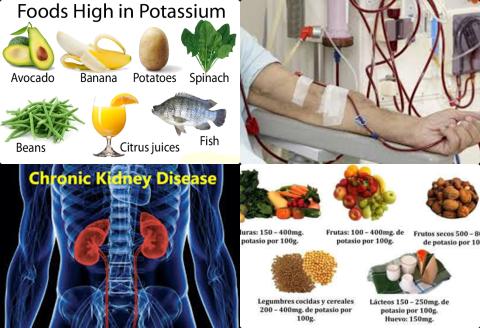
Objectives:
Low-potassium diets are recommended to reduce serum potassium (Sk) and prevent complications of chronic kidney disease (CKD), but evidence underpinning this recommendation has not been systematically reviewed and synthesized. Therefore, this review article has been conducted.
Do patients with chronic kidney disease benefit from low-potassium diets?
Study design:
This review article included 7 studies with 3,489 participants.
Results and conclusions:
The investigators found in very-low-quality studies that restricted (1,295 mg/d) versus unrestricted (1,570 mg/d) dietary potassium lowered serum potassium by 0.22 mEq/L [95% CI = -0.33 to -0.10, I2 = 0%].
The investigators found in very-low-quality studies that lower (1,725 mg/d) versus higher (4,558 mg/d) dietary potassium was not significantly associated with disease progression [HR = 1.14, 95% CI = 0.77 to 1.70, I2 = 57%].
The investigators found in very-low-quality studies that lower (1,670 mg/d), compared with higher (4,414 mg/d) dietary potassium intake was associated with a 40% reduction in mortality hazard [HR = 0.60, 95% CI = 0.40 to 0.89, I2 = 56%].
The investigators concluded very-low-quality evidence supports consensus that dietary potassium restriction reduces serum potassium in normokalemia and is associated with a reduced risk of death in those with chronic kidney disease. However, high-quality randomized controlled trials are needed to confirm these findings.
Original title:
Effect of Dietary Potassium Restriction on Serum Potassium, Disease Progression, and Mortality in Chronic Kidney Disease: A Systematic Review and Meta-Analysis by Morris A, Krishnan N, […], Lycett D.
Link:
https://www.ncbi.nlm.nih.gov/pubmed/31734057
Additional information of El Mondo:
Find here more information/studies about potassium and kidney disease.